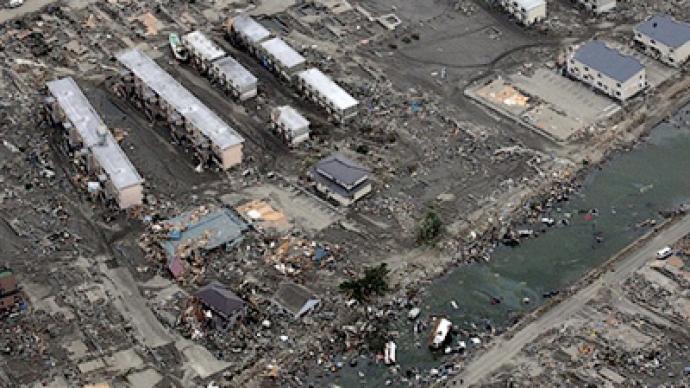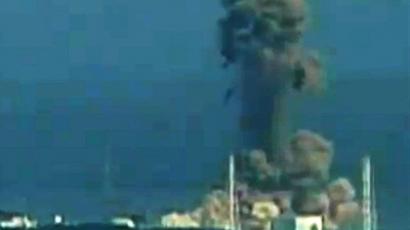The earthquake tsunami impact and global markets

In the wake of the Japanese earthquake and tsunami Business RT spoke with Uralsib Chief Strategist, Chris Weafer, about the possible implications for the global economy.
RT:How much of an economic setback will this be for Japan?CW: “For Japan its obviously going to be a very severe shock. You can see from the pictures that there is obviously going to be a lot of damage and disruption, particularly the warnings of power shortages. That could obviously extend the consequences across the broader part of the country and that is where the real effect will be. So its still very early and nobody, frankly, has any great idea to the extent of the damage or how long last it will be, or even the cost of rebuilding. So you can see that in the stock market behaviour this morning. People are just holding fire, waiting to see what happens next, particularly waiting to see if there is any follow up or any further events or any deterioration of the nuclear plants. But short term, we are going to see a big slow down, that’s inevitable, and then it’s a question of how quickly the country can start rebuilding and that, in terms of sequence, short term reaction will be very negative. Rebuilding on such a massive scale of course, can actually then lead to a very strong boom afterward. So we wait and see what the consequences are.”RT:Japans is the worlds 3rd largest economy. What are the potential repercussions, especially for Russia?CW: “Well again, there obviously will be consequences; it is the world third largest economy. What actions the government in Japan takes to rebuild the economy will have broader implications. For example if the country pumps in a lot of cash into the economy – today they pumped in $183 billion – so if they follow that up with some of the considerable financial reserves they have, then we could see a much weaker Yen, as they try to develop exports, that could then have consequences for other economies which are also trying to compete in world trade. Obviously rebuilding on such a massive scale can have positive benefits for a country like Russia, which is the world biggest supplier of materials. So there will be consequences, its just hard to define what they are going to be right now. Initially the impact is potentially negative, and we will have to watch the indicators over the next couple of months, and over the longer term we can be more positive as they rebuild.”RT:You referred to $183 billion to keep the financial system liquid – will that be enough?CW: “We assume this is just the first reaction today to make a strong statement from the Bank of Japan that they are willing to support the economy. Japan has the world’s second largest financial reserves – they are going to have to pump in considerable more money – whether it is tax breaks, grants, or direct funding, whatever way they eventually do it, there will be a lot more money pumped into the Japanese economy. There should be enough money to rebuild. It will obviously lead to a weaker Yen as the extra cash comes into the system.”RT: Japan is a major oil importer, and oil has been very volatile of late. Do you believe we could see a significant oil price drop?CW: “Well if it wasn’t for the fact that we are also looking at Libya right now I would say we would have seen a much bigger price fall in the price of oil, because Japan is a significant importer. Clearly they are going to import less over the next couple of months before we get back to something like normality later on, but the main driver of the oil market right now is still the Middle East, and the threat of supply disruption. Particularly I think what helped the price from falling last Friday and over the weekend is this news of unrest spreading to Saudi Arabia’s eastern province. It’s a big oil producing region. So the threat of disruption in the Middle East is still the dominant factor and that’s helped avoid a bigger price fall in the oil price right now.”














